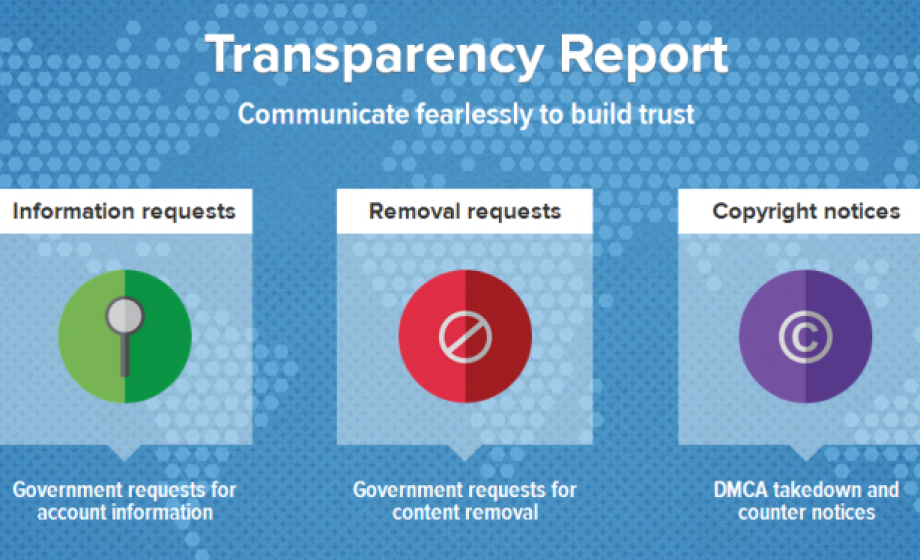
This week, Twitter released its Transparency Report for the first half of 2013, revealing which countries have made take-down and data requests between January and June of this year. The social network first started releasing these figures in 2012, though there were only 48 requests in total to remove tweets or users. In 2012, we saw that France was amongst the least active countries in terms of requests; however, in 2013, the French government has taken a more aggressive stance on Twitter concerning hate speech, ultimately resulting in Twitter giving in to demands by the government to have streamlined access to reporting inappropriate tweets.
%CODE6%
Looking at the 2013 report, France’s government requests dropped almost across the board in terms of removal requests: 14 Twitter accounts specified vs. 40 accounts, 12 tweets withheld vs. 40 in H2 2012, and a small rise from 1 to 3 removal requests by government agencies. In the same time period, Twitter saw an “increase in the number of requests received and number of withholding, including the withholding of content in five new countries: Brazil, India, Japan, the Netherlands, and Russia.”
In terms of Information Requests, France had a jump from 12 to 18 user information requests, but a drop from 54 to 35 accounts specified, as compared to H2 2012.
While other countries are getting on board (or off-board, depending on how you look at it) with controlling Twitter, it seems that Twitter has managed to stabilize its once tense relationship with the French government.
Unlike Google’s Transparency Report, Twitter’s lacks a bit of detail. Given Twitter’s “we’ll work with you” relationship to various governments, I’d like to see the list of ways Twitter has contorted itself in different countries, in order to understand the numbers better. For example, Twitter’s apparent cooperation with the French Government concerning hate speech may have influenced the number of requests by the government; I’d be curious to see if there were similar examples brewing in other countries. Russia, for example, seems to have had a large increase in content requests, citing Federal Law 139, a law passed in 2012 which created a blacklist of internet sites (child pornography, drug-related material, extremist material, and other content illegal in Russia, according to Wikipedia).
Twitter’s doing a great job at providing the data, but the context is lacking to understand its relationships and agreements with various countries. This is something that Google seldom has to worry about, due to their “if you don’t like us, we’ll just not offer our services to your citizens” attitude; however, even Google has begun bending its services to the requests of governments, having recently made Google News an opt-in service for media companies in Germany (due to a new law around royalties on the internet).

